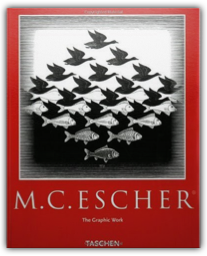
Renowned artist M.C. Escher is not a surrealist drawing us into his dream world, but an architect of perfectly impossible worlds who presents the structurally unthinkable as though it were a law of nature. Weird, beautiful, finely detailed illusions. 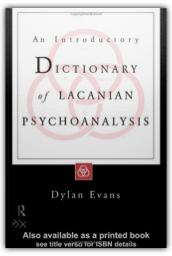
Emphasizing the clinical basis of Lacan's work, An Introductionary Dictionary of Lacanian Psychoanalysis is an ideal companion to his ideas for readers in every discipline where his influence is felt. The dictionary features: over 200 entries, explaining Lacan's own terminology and his use of common psychoanalytic expressions; details of the historical and institutional context of Lacan's work; reference to the origins of major concepts in the work of Freud, Saussure, Hegel and other key thinkers; and a chronology of Lacan's life and works. 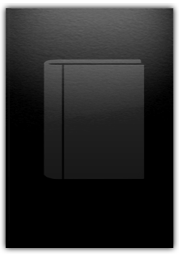
Published within the 'Signature' Series, a series of authoritative performing editions of standard keyboard works, prepared from original sources by leading scholars. Including informative introductions and performance notes 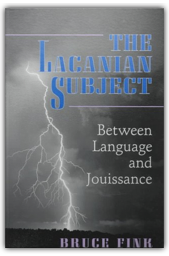
This book presents the radically new theory of subjectivity found in the work of Jacques Lacan. Against the tide of post-structuralist thinkers who announce "the death of the subject," Bruce Fink explores what it means to come into being as a subject where impersonal forces once reigned, subjectify the alien roll of the dice at the beginning of our universe, and make our own knotted web of our parents' desires that led them to bring us into this world. 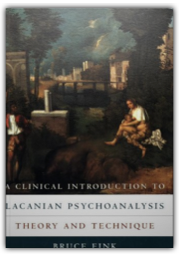
Arguably the most profound psychoanalytic thinker since Freud, and deeply influential in many fields, Jacques Lacan often seems opaque to those he most wanted to reach. These are the readers Bruce Fink addresses in this clear and practical account of Lacan's highly original approach to therapy. Written by a clinician for clinicians, Fink's Introduction is an invaluable guide to Lacanian psychoanalysis, how it's done, and how it differs from other forms of therapy. While elucidating many of Lacan's theoretical notions, the book does so from the perspective of the practitioner faced with the pressing questions of diagnosis, which therapeutic stance to adopt, how to involve the patient, and how to bring about change. 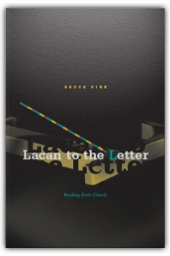
To read Lacan closely is to follow him to the letter, to take him literally, making the wager that he comes right out and says what he means in many cases, though much of his argument must be reconstructed through a line-by-line examination. And this is precisely what Bruce Fink does in this ambitious book, a fine analysis of Lacan’s work on language and psychoanalytic treatment conducted on the basis of a very close reading of texts in his Écrits: A Selection. 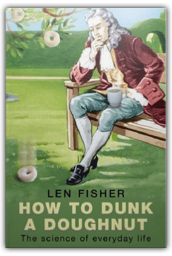
Science is all around us. In this brilliant, entertaining book, Len Fisher provides scientific answers to familiar questions such as how to boil the perfect egg, how to catch a ball, the physics of sex, and why some vegetables absorb more gravy than others...In doing so, he reveals the world of the scientist - how they think, what they do, and how they go about doing it - proving that even the most commonplace activities can be used as a key to understanding the laws of nature and that experimental science can be fun! |
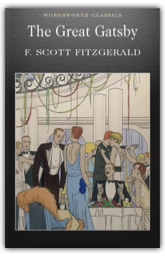
With an Introduction and Notes by Guy Reynolds, University of Kent at Canterbury. Generally considered to be F. Scott Fitzgerald's finest novel, The Great Gatsby is a consummate summary of the "roaring twenties", and a devastating expose of the "Jazz Age". Through the narration of Nick Carraway, the reader is taken into the superficially glittering world of the mansions which lined the Long Island shore in the 1920s, to encounter Nick's cousin Daisy, her brash but wealthy husband Tom Buchanan, Jay Gatsby and the mystery that surrounds him. 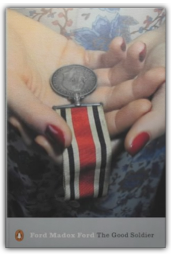
The meeting of John and Florence Dowell and Edward and Leonora Ashbumham in a German health spa is the centre of a train of lies, deceptions, adulterous love triangles and deaths. John Dowell, a memorably "unreliable" narrator, calls it "the saddest story I have ever heard". His narrative distance stems partly from the distance in time of the events, partly from his absence from some of them, but mostly from his ignorance or denial of realities as intimate as his wife's serial deception. 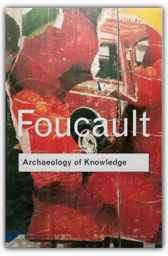
In France, a country that awards its intellectuals the status other countries give their rock stars, Michel Foucault was part of a glittering generation of thinkers, one which also included Sartre, de Beauvoir and Deleuze. One of the great intellectual heroes of the twentieth century, Foucault was a man whose passion and reason were at the service of nearly every progressive cause of his time. From law and order, to mental health, to power and knowledge, he spearheaded public awareness of the dynamics that hold us all in thrall to a few powerful ideologies and interests. Arguably his finest work, Archaeology of Knowledge is a challenging but fantastically rewarding introduction to his ideas. 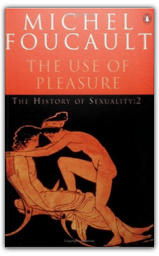
This book offers an account of the emergence of Christianity from the Ancient World. Here Foucault describes the stranger byways of Greek medicine (with its advice on the healthiest season for sex as well as on exercise and diet), the permitted ways of courting young boys, and the economists' ideas about the role of women. The book abounds in insights into the differences - and the continuities - between the Ancient, Christian and Modern worlds. But Foucault does far more than merely recreate a vanished era when sex was not a major moral issue (only Plato, like Saint Paul, saw puritanical restraint as the way of wisdom), but makes us rethink all our own assumptions about sex. 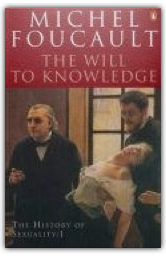
Why has there been such an explosion of discussion about sex in the west since the 17th century? Here, one of France's greatest intellectuals explores the evolving social, economic and political forces that have shaped our attitudes to sex. In a book that is at once controversial and seductive, Foucault describes how we are in the process of making a science of sex which is devoted to the analysis of desire rather than the increase of pleasure. 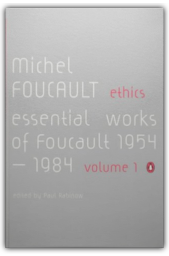
This is the first of three volumes collecting the most significant writings and interviews of Michel Foucault outside his published monographs. "Ethics" contains Foucault's summaries of the highly influential courses he taught at the College de Francefrom 1970 to 1982 (hitherto never translated into English), as well as engaging and unusally candid interviews and Foucault's key writings on ethics. 'A fabulous journey through thirty years of political and intellectual ferment that shows that Foucault's work is as alive and contemporary as ever' - Didier Eribon. |

Stephen Lavelle
Collection Total:
374 Items
374 Items
Last Updated:
Sep 5, 2010
Sep 5, 2010


 Made with Delicious Library
Made with Delicious Library